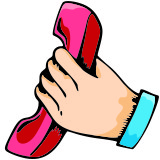
Monthly Archives: October 2015
News, Part I
I guess we won’t have my cuz to kick around for a while, eh.
A plurality of Canadians have given Stephen Harper’s Conservative Party the boot after nine years and elected Justin Trudeau to head a new Liberal government in Canadian federal elections held two weeks ago. Mr. Trudeau takes office November 4.
I didn’t learn that on Facebook. It was probably tweeted but even the curated Twitter feed is too congested to pick out that tidbit.
In fact, I don’t get my news from Twitter or Facebook. Here’s why.
Here’s what is trending this morning on Facebook:
• Clear Food: Report Finds Some Vegetarian Hot Dogs Contain Meat, Traces of Human DNA
• Maureen O’Hara: Actress Known for Role in ‘Miracle on 34th Street’ Film Dies at Age 95
• Vancouver Island: Whale Watching Boat Sinks With 27 on Board, Killing at Least 5
• Jimmy Morales: Former TV Comedian Elected President of Guatemala in Landslide Victory
• Chris Christie: Governor of New Jersey Kicked Off Amtrak Quiet Car for Talking on Phone
• Comet Lovejoy: Researcher Says Comet Is Producing Alcohol and Sugar
• Germaine Greer: Feminist Writer Says Transgender Women Are Not Women During ‘Newsnight’ Interview
• Florida Bear Hunt: Federal Agency Ends Hunt in Central Florida After 207 Bears Get Killed
Truth? I don’t care if Amtrak kicked Chris Christie off the quiet car any more than I care that American Airlines kicked Alec Baldwin off a plane for playing games on his own cellphone. It was boorish behavior but it wasn’t news.
“I am more inclined to follow it on the internet. TV news is too slanted. Reporters deliver the news with political slants to the left or right and they dilute the actual facts of the event,” wrote a Yahoo forum correspondent.
I’ve watched plenty of people click every link in the “Trending” column of their Facebook feed. That, of course, pleases Mr. Zuckerberg. But they made the same fundamental error as our Yahoo correspondent.
That Yahoo correspondent thinks that Internet news is less skewed and is more fact-checked than other sources. We “drink from the firehose” of “information overload” in the best of times. Probably better that our firehose be pumping something of substance.
This is news, as reported this morning in the NYTimes:
• Health Care Co-op Closings Narrow Consumers’ Choices
• Criminal Charges and $50 Million Fine Expected in Goldman-New York Fed Case
• Afghanistan and Pakistan Hit by Huge Earthquake
• Right-Wing Party Roars Back in Polish Elections
• Broadband: New York State Attorney General Eric Schneiderman Launching Probe Into Internet Speeds
• General Motors and the United Automobile Workers union [that owns 8.7% of GM stock, down from 17.5% in the 2009 car theft] reached a tentative agreement
• The Obama administration called for a testing cap so that no child spends more than 2 percent of classroom instruction time taking exams.
Every one of those stories has an impact on your life and mine.
The truth is that most news isn’t all that important when counted against your day-to-day life or mine. Facebook might argue that the “ambient engagement” and “community awareness” their Trending line offers provides the context we need to get through the day.
Really?
So, knowing that Germaine Greer thinks transgender women should use the men’s room helps me put food on the table?
I’m all for absorbing data by osmosis but the way we actually answer the questions of whether we can afford a new car this year or if it is safe to walk the street after dark rarely comes from the fake reports; it comes from the hard news of consumer prices, the Cleveland Clinic’s new mobile stroke unit, and what laws (if any) Congress passed last week.
News is more accessible than ever, but it’s up to us to find it. There’s more information in one daily NYTimes or Wall Street Journal than I can digest and the Internoodle just compounds the problem. The Interwebs deliver little but what you want to hear, not what you need to know.
Next week, we’ll look at the quality of the news instead of the quantity and the headlines.
As a side note, anyone who thinks hot dogs don’t contain stuff you don’t want to know about including traces of human and rat DNA, also believes their favorite politician told them the truth today.
Wordless Wednesday
Really?
Call Blocking
Ever get a call from a Nigerian Prince with a bank account he needs to move to the U.S.? Ever get a call from a Nigerian Prince who hung up without leaving a message? More people complain about spam/scam/sham phone calls than complain about Comcast. That’s saying something!
• “I don’t understand! My caller ID said my own number was calling.” Mr. Santiago said. “When I answered, ‘Kestrel Finance’ tried to sell me South African gold.”
• “Synchrony Bank tried to collect a late payment on my mortgage,” Ms. Chan told me. “I don’t have a mortgage.”• “They called 12X today. They said I am eligible for a loan. I told them I didn’t want a loan and not to call back. After that call they continued to call 11 more times.” That was M. Girardot.
• “An IRS agent left a recorded message that the IRS was filing a lawsuit against me and this was my ‘final notice’,” Ms. Krieser wrote. “They didn’t leave a call back number.”
• “I was called from Norton Tech Support for a hacker issue on my PC and they wanted to fix my laptop remotely,” Mr. Baker said.
• “They said I had qualified for a $12,000 government grant and they ask me to send $250 to process the funds.” Ms. Darby reported. “They called me 12 times in three days but Bell Canada says the number is disconnected when I called back.”
• Ms. Gekko wrote, “Googling the number, I discovered that it is usually used by the collections department of Citi.”
“The federal Do Not Call list will put telemarketers out of business.” an unnamed Congresswoman told the nation some years ago.
 Maybe not so much. The Do Not Call list not only kept telemarketers in business, it gave the worst of them 217 million new phone numbers to troll. The legitimate marketers sort of comply with the law; everybody else ignores it.
Maybe not so much. The Do Not Call list not only kept telemarketers in business, it gave the worst of them 217 million new phone numbers to troll. The legitimate marketers sort of comply with the law; everybody else ignores it.
Mr. Santiago and his compatriots are the lucky ones. They never connected to or they hung up on the bunch of crooks and hoaxes and scam artists. In those very real examples, the callers wanted to sell them something real or wanted to sell them a bill of goods.
And then there are the real crooks.
Vishing (“voice phishing”) is used to steal credit card numbers or other personal information from anyone who answers the phone.
• “He told me ‘You’ve won big money in a foreign lottery’,” Mr. Franks said. I sent him $350 by Western Union.
• The Shutoff Swindle: “She told me she was from FKEC [the South Puffin electric company],” Mr. Bennett said. “She said my service was about to be shut off because I hadn’t paid my bill. I told her I had but she said she couldn’t stop it unless I paid and I’d get a credit later if they figured it out. My CallerID had FKEC’s phone number so I knew it was them. I sent her $1,400 on a Green Dot card.”
• A stock scam usually starts off, “This investment is low risk. You’ll get a higher return than you can get anywhere else.”
• “I won a free big screen LED TV,” Ms. Wilson said. “They said they’d just put the shipping and handling charges on my credit card.”
Finally, “my former spouse does not, and never has had a Citi card,” Ms. Gekko wrote,
I first thought that Citi may have bought the debt, but I’ll bet it’s more nefarious. Debt collectors buy (and sometimes simply make up) old and expired debt for pennies or even fractional cents on the dollar. Then they throw harassing calls at it until the poor sucker gives in. And they often spoof the phone number and CallerID.
Too many neighbors reported to me that someone called them and
threatened to beat or smear them;
swore at them;
called repeatedly often without leaving a message;
claimed to be a cop;
lied about the amount owed;
claim that they would lock up the borrower;
tried to collect a debt no one owed;
tried to collect a time-barred debt
and so much more.
Time-barred debts and non-existent loans are the bread and butter of criminal collection agencies. These and hundreds of other fly-by-nights buy a list of “aged out” debts (or imaginary ones) for pennies or even fractional cents on the dollar and then do whatever it takes to collect. And when you pay them, they often don’t record it, simply selling your name to someone else.
I have a simple solution.
I.Don’t.Answer.The.Phone.
 We have four lines coming in. Two once-upon-a-time landlines that are now Voice Over I.P. and two cell lines. That is, potentially, a lot of calls. Fortunately, they almost never all ring at once.
We have four lines coming in. Two once-upon-a-time landlines that are now Voice Over I.P. and two cell lines. That is, potentially, a lot of calls. Fortunately, they almost never all ring at once.
Oh, sure. If I feel like it and recognize your number, I may answer. If I don’t recognize the number, I guarantee it’s going to hear my witty, pithy, most excellent VMX message.
Happily, almost none of the spam/sham/scram calls leave messages.
My Panasonic cordless phone has call blocker built in. Vonage has call blocker as well.
Call blocking doesn’t work for new ones where you have to give them your phone number, though.
That’s why I use 802.524.5993 and will happily give that to any spammer or scammer or shammer who asks for it.


